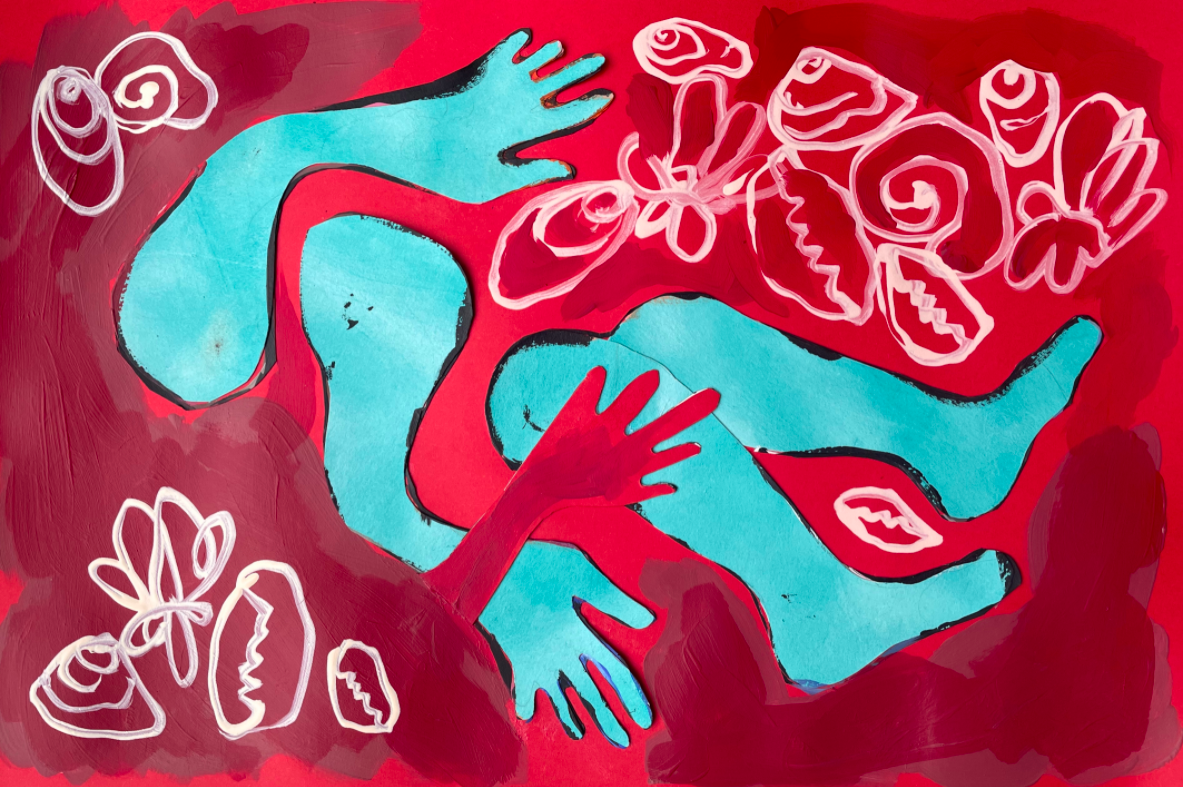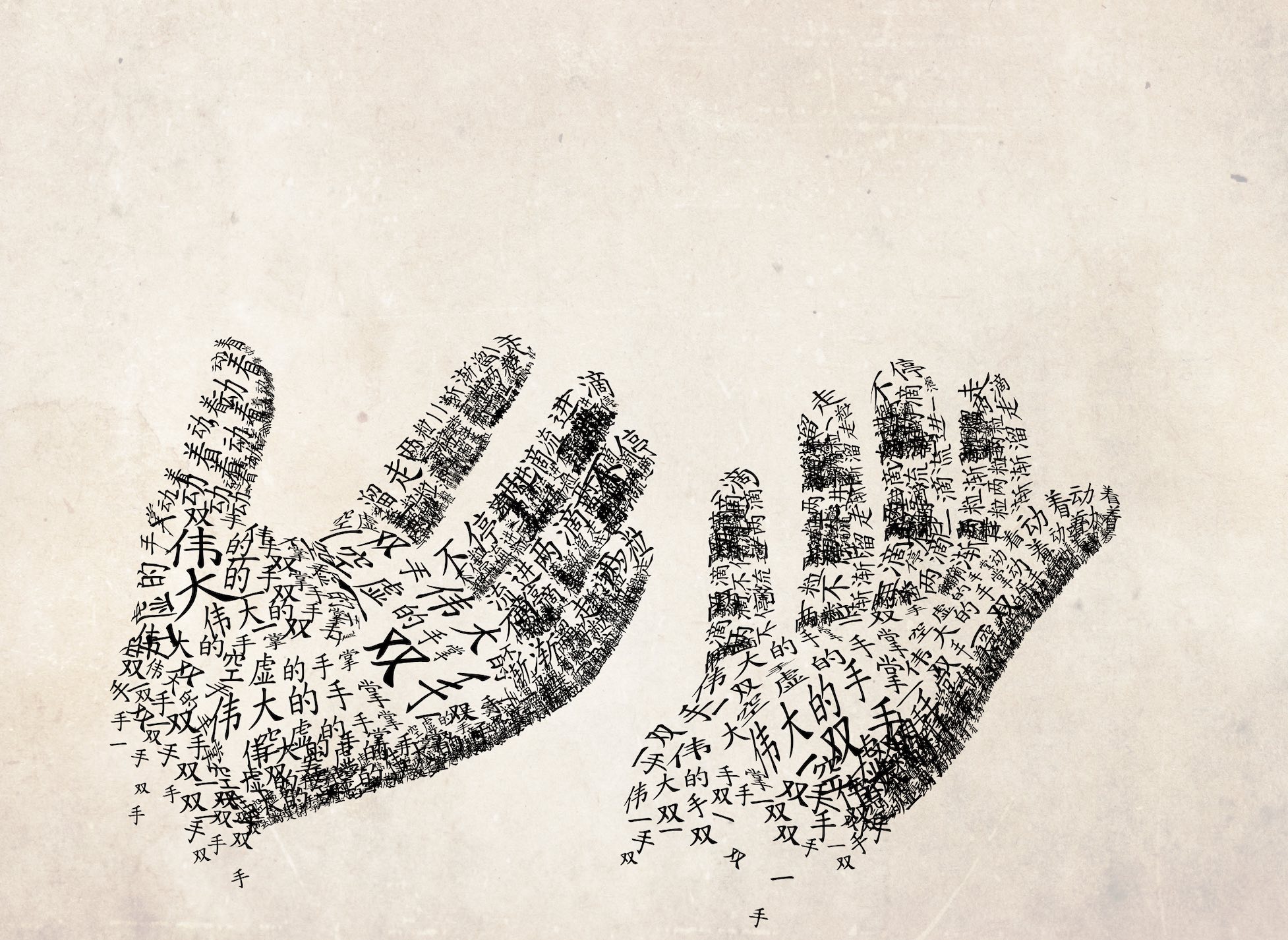
Searching for Seashells
When we were much younger, my little sister spent one restless summer searching the shore for starfish. She dug her tiny fingers into the sand, gathering them excitedly in a bucket until they dried up, and then cried over their sorry cracked bodies. The holidays that followed, she took to walking the length of the coast tossing seashells back into the ocean. She figured the waves had accidentally misplaced them, just as she often misplaced her belongings, forgetting to zip up her little rucksack, scattering her prized knickknacks all over her path. She despaired over the sea dispersing bits of itself along the sand. “The poor ocean,” she’d say. “Look at all she’s lost.”
“Look how this one shimmers,” she tells me now, a decade later, turning a seashell over slowly in her hand. “I could make a necklace with it, or something.” Her fingers close possessively around it, and her knuckles slowly pale with pressure. When she next opens her hand, the sharp outline of the shell carves through her palm.
“Mum always said it was bad luck to keep them,” I offer, almost instinctively.
“Still,” she says, and falls silent.
My sister’s sturdy, suntanned legs dangle over the rickety pier, the faint cuts of last-minute ankle-shaving plunged into seawater, and after last night I find myself silently urging them to be washed away. I pray her teenage legs will reemerge from their dip glossy and unscathed, the smooth golden limbs of the sun-prone child I grew up with.
The day’s unbroken stillness is at once pleasant and unsettling. Smooth and shiny, the sea looks like a searing sheet of metal. The wind seems to hold its breath, its silence interrupted only by the occasional wave slapping sonorously against the deck pillars. Droplets of seawater land on my cheeks and I realise my sister has lowered herself into the water. Years ago she would shuffle back along the pier for a run-up, spring up into the air – a heart-warming little bundle of a human being, chubby legs hugged towards her panting chest – and plunge into the ocean, always piercing the surface at the most aching angle. Today she has gathered up her hair into a bun and slowly eased herself into the water.
“The sea washes away your highlights if you let it, you know,” she informs me. “It’s not worth it for a quick dive.” Her words make me feel stiff – they make me hunger for past afternoons of wrecking our long hair together under the beating waves. The two years between us, an essential reality to me, establishing my position as older sister, as notorious conveyor of worldly wisdom, mean nothing to her. She would have them dissolve, she would have us switch places, as she teaches me what it is like to be a cautious, well-presented woman who protects her carefully coloured hair. I listen as if I have not had to learn this lesson before, as if all girls hadn’t all done so.
“Looking pretty takes effort,” she says, sighing and then chuckling nervously, like we’re bonding over a shared struggle. Is there a sadness in the way she stirs about, thinking twice about every movement, or does it belong to me? Am I its oblivious source? After a moment’s thought, I decide it emanates from us both, this uncertainty. I glance at her and think of speaking about last night. What are we sighing softly over? What has been washed away by the years? I don’t.
“Some honey highlights through your hair would brighten it up beautifully,” she ventures, after a while. “Make it look more summery.”
“Do you think so?” I reply. I would love to look summery. Yet as she carries on about the exorbitant price of hairdressers’ appointments, I feel the loss of something. There is something about this prolonged, hushed moment… It is like eating slightly sour raspberries. I am enjoying it, but with a small involuntary wince.
She bobs up and down with the tide, and the closer I listen to the waves, the less like waves they sound. Slowly, they stir forgotten scraps of memory, they pick up the pace to become the frenzied smacking of my sister’s bare feet against cool ceramic tiles as she runs along the corridor on a Saturday morning, eager for our weekend film-watching. Her little figure, unruly hair chopped into a hysterical bob, emerges by my side in front of the television. She cannot wait to be dazzled for the millionth time by our latest film obsession. Once our family makes the sensational transition to DVDs, the novelty draws my sister out of bed early, as she’s stirred by the mortal fear of missing even the setup menu screen, the wonder of its interactivity, the recurring melody of its background music.
I cannot reconcile those chunky toddler feet, stomping clumsily along the corridor, to the razor-marked, nail-painted, ankleted pair swinging back and forth beside mine. It is a woman’s body, I realise. Like my own, like these powerful, bulky thighs with which I have only recently made peace. It has been a woman’s body since long before last night, no doubt, but she – like I – seems to have only recognised it now.
“It didn’t hurt!” my sister tells me at last, and I try not to wonder why that should be the enduring fact about last night.
Should I tell her I’m glad? Should I question the standards of her satisfaction? Should I wonder what it is I’m feeling? The suddenness of what she’s blurted out makes me want to gasp like in the films, to burst incongruously into laughter.
“I’m really glad to hear that,” I say, offering her a reassuring smile. “It’s getting a bit cold, isn’t it?”
She pulls herself out of the water energetically and huddles towards me, rubbing my arms vigorously to warm me up. There is no cool breeze, but we remain snuggled up together at the edge of the dock for some time.
“God, this really is what our childhoods smell like, isn’t it?” she says, picking up the sunscreen I’m coated in and sniffing it, equally repulsed and nostalgic. Childhood, singular, I correct her silently – for it is a shared territory, curious pastures along which we traipsed, stumbled, and lost balance hand in hand.
“Sticky?” I giggle. Whatever a well-spent glimmering afternoon smells like, when the heat makes the air pulsate surreally.
“Something like that.” She ponders. “Sweat-diluted sunscreen. Sweat and salt!”
“On red-hot skin,” I add.
“In your case, absolutely, red-hot! I wouldn’t speak for us all, though.” She rubs her suntanned arms, nudging me playfully. “You know, sunburned and suntanned are two separate states.” The former is not a condition my sister often finds herself in. I feel the tops of my shoulders tentatively and know that tomorrow I’ll wake up with white bedsheets plastered into them and have to peel them delicately off my skin. Never mind; the day for nursing sunburns is always tomorrow. Today, we gleefully roast.
Irked by the ocean’s midday lull, my little sister swings her legs up behind her and, as her fingers twitch for something to do, she turns to braid my hair. Giggling to herself, she tells me how she fancies that hair-braiding is fundamentally a spiritual operation. By tightly plaiting our hair, she explains, drawing our long locks into a single tress, we gather up our energy, closing ourselves off from others’ influences. It’s like preparing for battle, she exclaims solemnly, like war paint. “See? You’re protected now!” she announces once her labour is done.
“From what?” I wonder, and she shrugs her shoulders. I close my eyes and let the ocean tangle itself up with us slowly, I attune myself to this lazy rhythm, finding myself breathing to it, softening into it. It is an effortless thing, letting yourself be inundated by the sea, a trick of harmony we have perfected over the years. When the world falls silent, I’ve learnt to hear the sloshing of oceans behind my ribcage. I imagine my bones gnawed by the brine. When the sun aims directly at me, I fancy my damp heartbeats crystallise into salt. I have always conceived of the two of us as beachside creatures – our movements set to the pace of its ebb and flow, our skin either brushed or blistered by its heat. The unbanishable presence of sand on the nooks of our bodies, clothes, and books deems us a continuation of its territory.
When I look around our precious spot along this beach, the familiar bend of the uneven planks of wood below us, swaying ever so slightly, the pier fragments itself into a mosaic of all the past summers it contains. Along this shore all my past summer selves have watched all my past summer sisters delight in the ocean. The first holiday we spent here, we held hands and skipped waves until one crept up towards us unexpected – our backs turned to the horizon as we scanned the beach for our parents – and dragged us back violently towards the shore, sanding our backs against the ground until they felt raw and glowed a salmon red. Yet we simply got up, brushed off the sand, and dived back in, for scrapes don’t hurt at the beach – they merely add to the pleasant exhaustion that consumed us after a day spent under the sun. Where we come from, we have a saying about flowing water, which, beating constantly upon solid rocks, eventually carves its obstinate path through them. I remember looking down at my own body like a salt-worn coast, amusing myself by imagining my contours chiselled by the currents, sculpted into a curious work of art by constant friction with seawater. Those afternoons are not unlike the moment I introduced news of my own with ‘So last night…’, searching for any trace of transformation on my body, glancing at myself in the mirror, swirling around goofily in front of it to inspect all angles, and finding none. I remember wondering, would people be able to look at me and just tell…? Would they take notice of the way last night lingered on me, weighing curiously on my limbs? Did I want them to? Would I alone be aware of this sudden, silent shift? I remember telling my sister.
We’re both pondering the effects of last night on her, on myself, on this intimately familiar seascape. I can tell, I convince myself, as I read into her unusual stillness my own contemplative nature. My sister seems to discover her skin anew as the salty water envelops it; she seems to be growing into her slowly unfolding figure. And I am left to feel that, despite her wavy, unbraided hair, something in her has shut off the world, turned inwards, as she repeats: “thank God, it really didn’t hurt.” I fancy she is taking stock of what has changed since last night, since our early summers. I fancy her soul feels suddenly old, weary but pleasantly so, the kind of glorious bone-tiredness that wise old women carry.
“Do you remember when it was my turn?” I ask, and we burst out laughing. “You waited so patiently for me to put all of it into words, to explain–”
“–and oh, did you take your time! You’d think you were gearing up to confess a murder!”
“I just needed time to think!” I reply, affectionately conjuring up the occasion from my memory.
“What, in the moment? Not really a thinking activity, that one. Not if you’re doing it right, at least,” she says, raising her eyebrows at me and throwing her head back in laughter.
“No, I needed to think about how to tell you–”
“–Anyway, when you were finally out with it, I could finally be thrilled for you.”
“You were thrilled. And horrifically nosy.”
“Interested. You wouldn’t answer things, though. Never has anyone been pinker!” she declares. Why is she not blushing? “But I could tell you were happy about it,” she adds, gently, after a moment. “Your eyes did that thing where they squint like when you smile, so I knew and so I was happy for you.”
Her gaze dives into the water and then follows its expanse towards the horizon, as her hands stumble back across her little seashell and turn it over in her palm.
“I’m happy for you too, you know,” I say, nudging her slightly. “I’m thrilled!”
She delights at my theatrical gestures, at the way I have raised my shoulders and thrown my hands up into the air. She falls silent after that, and I decide she is asking herself what sort of woman she’ll grow up to be. After all, womanhood is an often treacherous journey to undertake. Or perhaps a convoluted dance – yes, a feat of great reflex, of expertly sidestepping, skirting, shuffling away from the frightening possibilities of what we may become. Sorrowful, or furious? Melancholic? Disillusioned? What will come of it for my sister? Will she sigh long, deep-rooted sighs like women sometimes do when they’re not being looked at, in quick stolen moments? Will she burst into quiet tears ever so often and wonder why, brushing away the traces of distress from eyes that have gradually grown opaque? Or will her eyes glimmer with quiet pride at herself, at her defiance? Will she be a darling? Amicable? Difficult?
Then she plunges back into the water, and I fancy she’s not thinking of anything at all. In doing so, she has kicked her shimmering seashell away, sent it skidding across the deck into the gap between two planks. I watch it drop into the sea quietly, losing its shiny polish in the water’s rippling light. She takes no notice. I fancy she is perfectly content, marvellously unchanged, my little sister surviving the shipwreck of time to glance over at me with these chocolate eyes that, gladly, have not grown up, and now turn to face me, for we both realise I have long been gearing up to a question.
“But did you… enjoy it?” I venture at last, feeling as if I have held my breath along with the breeze for the last hour, gulping in air.
The seawater embraces her, wraps around her bronze shoulders like a shawl, and my memories of a giggling childhood slowly give way to – what? To my sister, not of the past but of our present summer, gorgeous and consumed with curiosity of a different kind.
“Nothing a bit of practice won’t solve!” she chuckles cheerfully. After all, this is just another yesterday to shuffle into her bundle of days which, in afternoons like these, can almost seem endless.
What sort of woman? She’ll be fun, I think. Thank God.▇
Words by Flavia Velásquez Cotini. Artwork by Millie Dean-Lewis.







